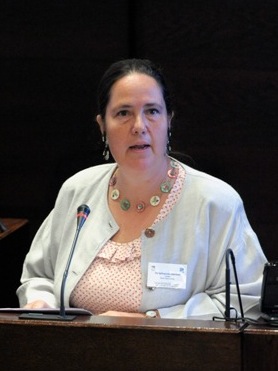The course approaches territorial autonomy from an interdisciplinary perspective, focusing on law and political science. The aim is to provide participants with a broad academic framework for discussing territorial autonomy from different perspectives, among others against the background of concepts such as self-determination, power-sharing and minority rights. The course includes modules on the demilitarisation and neutralisation, the autonomy regime as well the cultural and linguistic safeguards pertaining to Åland. A focus will be on the development of the regime over time, including more recent shifts in the regime. The course will also discuss the relevance of territorial autonomy as a possible tool for conflict resolution.
The course encompasses 5 modules, as well as introductory reading materials and a final essay of 4000 words.
- Political power-sharing and institutional solutions for autonomy
- Linguistic Safeguards, the Right of Domicile and Diversity Management
- Security issues: Demilitarisation and Neutralisation
- The Challenge of Multi-level Governance and Regional Integration
- Tools for Conflict Resolution
The course is strongly based on current academic discourses touching upon territorial autonomy, to which the Åland Islands Peace Institute has been able to contribute, among others through its publication “The Åland Example and its Components – Relevance for International Conflict Resolution” (2011) and a special edition of the International Journal for Minority and Group Rights (vol. 20, 2013).
The course is first and foremost designed as a university course. Participants from all over the world are welcome to register for one of the 20 places offered.
| Voices on the course | |
 |
Associate Professor in international Law Sia Spiliopoulou Åkermark, Course Teacher: “Theren is a great international interest in diversity questions, in the Åland Example and how territorial autonomy can be used as a tool for conflict resolution and diversity management. We are receiving questions from all over the world, e.g. Kashmir, Thailand and Indonesia. There is also curiosity in the Nordic countries on how autonomy solutions work in practice. Not everyone who is interested has the possibility to come to Åland and the Peace Institute doesn’t either have the capacity to receive everyone. So, this course is a way to share the knowledge we gather”. |
 |
Meena Pillai, course participant 2016: “I found the territorial autonomy course to be really satisfying. It was a very different course to other online courses because of the high level of interaction and engagement with the course convenor and other students. I really felt like I knew them as class mates and the personalised comments and feedback from Professor Sia was wonderful. Totally recommend the course to anyone wanting to get a grasp of the issues around territorial autonomy and how Åland manages is status.” |
|
Jaakko Virkkunen, course participant 2016: “The course provided a good insight into the potential of autonomy arrangements as tools for conflict management, drawing especially from the case of the Åland Islands, but not limited to it. I found the group discussions to be a nice way to process the readings together and the final essay gave a chance to make use of the course content in a context of an actual case, which I thought was interesting.”
|
|
 |
Ida Jansson, participant in the course during its pilot run in spring 2015: “The course was very interesting and gave me many new perspectives. It was particularly exciting to read documents from 1917-1921 when the Åland Islands Question was solved, and to get an overview of the international agreements that affect Åland today,” |





